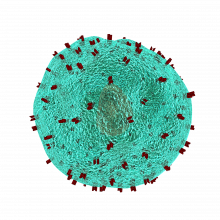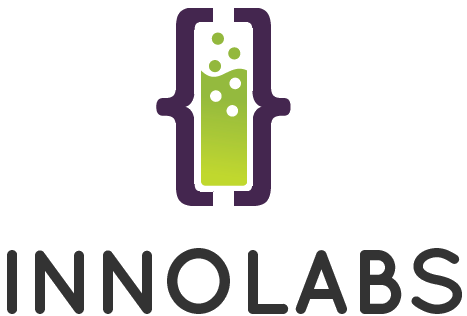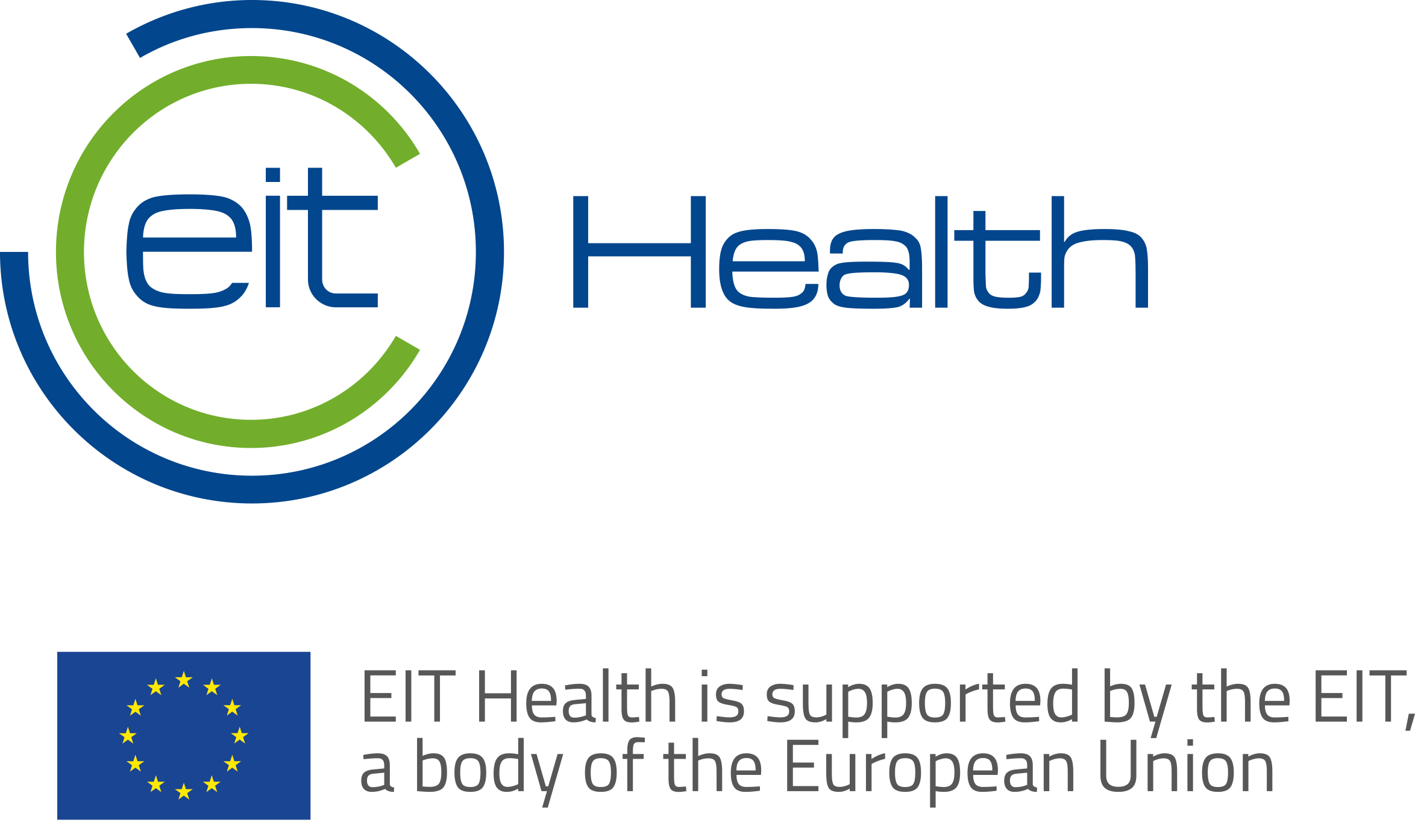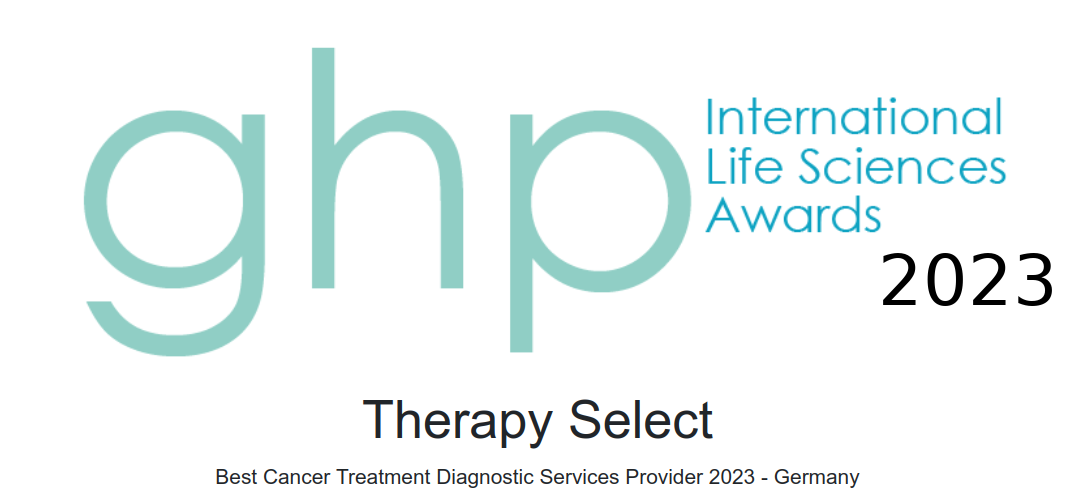Targeted cancer therapy, as well as chemotherapy, utilizes drugs to fight against cancer. However, drugs used for targeted therapy almost exclusively affect cancer tissue and mostly do not affect healthy cells. The targeted drugs function on cell level to limit tumor growth.
These drugs are usually administered in tablet form or via infusion, in less frequent cases they are also injected under the skin.
Does Targeted Therapy work for all patients?
Many cancer patients nowadays can benefit from targeted therapies. However this depends both on the type of cancer and on the patient: the characteristic features of tumors vary from patient to patient. Only if a drug ( or a drug combination) is adjusted to these specific features, the therapy has a chance of success. Though when a patient responds to these targeted drugs exceptional high efficacies can be obtained.
The probability of response can be increased by selecting the right patient group. Selecting the right drug for a given patient is critical for the success of cancer therapies. Therefore it is important to test the possibility of a response before starting the therapy. For targeted drugs this can be realized via biomarkers, since the sites of action of the drugs are very specific and these sites of action can be utilized as specific biomarkers for analyzing the efficacy.
At this point the concept of TherapySelect comes into play: we are committed to develop the most advanced diagnostic testing procedures to assist physicians and patients in their treatment planning. In this context, we offer test procedures for drugs in targeted as well as in chemotherapy.
Mechanisms of Action of Targeted Cancer Therapy
The collective term "targeted cancer therapy" does not cover a single strategy for fighting cancer cells, but rather a whole series of different modes of actions: Some drugs block the receptors on tumor cells against so called growth factors and hence block the cells from receiving signals to divide, which results in complete or partial growth arrest of cancer cells. A rapidly growing tumor needs new blood vessels to supply oxygen and nutrients for the growing tumor cells. Drugs preventing the growth of new blood vessels can limit the growth of a tumor since the tumor cells do not receive enough nutrition and cannot divide anymore. Another strategy is to block the excretory mechanism of cells. The redundant proteins cannot be removed and thus the cells “suffocate”on these proteins. Other substances sabotage the repair function of cells. Thereby damaged DNA cannot be repaired anymore which leads to the death of cancer cells. In addition drugs like monoclonal antibodies are used to mark the cancerous cells. The immune system can recognize these marked cells as abnormal and kill them.
The table below, lists all drugs currently approved for targeted cancer therapy (as of July 2017). The subdivision is based on mechanism of action. In addition, the right three columns indicate whether the suitability of each drug for a specific patient can be evaluated by different test methods (CTR-Test® or biomarker analysis such as PCDx™ or Guardant360®). It can be easily recognized that tumor profiling using molecular-based biomarker analysis covers almost all medications, while an evaluation via CTR-Test is in many cases not yet validated. In anti-hormone therapies, where the drug does not act directly on the tumor cells, efficacy can not be determined by the CTR test.
|
Main Groups of Targeted Therapies |
Mechanism of Action of Targeted Drugs | Substance Name | Drug Efficacy testable using | ||
|---|---|---|---|---|---|
| Living Tumor | Archived Tumor (FFPE) | Blood (Plasma) | |||
| Anti-Hormone- Therapies |
Estrogen Receptor- Modulators | Diethylstilbestrol Fulvestrant Tamoxifen Toremifen |
currently not currently not yes currently not |
yes yes yes yes |
currently not currently not currently not currently not |
| Inhibition of Testosterone and Estrogen Biosynthesis | Abiraterone | no | yes | currently not | |
| Aromatase Inhibitors | Anastrozole Exemestane Letrozole |
no no no |
yes yes yes |
currently not currently not currently not |
|
| Androgen Receptor Inhibitors | Bicalutamide Enzalutamide Flutamide |
currently not currently not currently not |
yes yes yes |
currently not currently not currently not |
|
| GnRH / GnRH Receptor Modulators |
Abarelix Degarelix Leuprorelin Triptorelin |
no no no no |
currently not currently not currently not currently not |
currently not currently not currently not currently not |
|
| Proteohormones | Octreotide | no | currently not | currently not | |
| Progesterone / Receptor Inhibitors |
Medroxyprogesterone Megestrol |
no no |
yes yes |
currently not currently not |
|
| (Growth-) Receptor-Inhibitors | Intracellular Tyrosinkinase Inhibitors |
Afatinib (EGFR) Brigatinib (ALK, EGFR) Erlotinib (EGFR,HER1R) Gefitinib (EGFR) Lapatinib (EGFR,HER2) Lenvatinib (VEGFR1,2,3, FGFR1,2,3,4,PDGFR alpha,c-Kit,RET) Neratinib (EGFR, HER2) Osimertinib (EGFR T790M) Sunitinib (PDGF,VEGF, c-Kit, FLT, CSF, RET) Vandetanib (VEGFR, EGFR,RET) |
currently not currently not currently not currently not currently not currently not currently not currently not currently not currently not currently not |
yes yes yes yes yes yes yes yes yes yes yes |
yes yes yes yes yes yes yes yes yes yes yes |
| Extracellular Receptor Inhibitiors |
Bevacizumab (VEGF) Cetuximab (EGFR) Dinutuximab (Gangliosid GD2) Necitumumab (EGFR) Olaratumab (PDGFR alpha) Panitumumab (EGFR) Pertuzumab (HER2) TDM1(Ado-trastuzumab emtansine)(HER2) Trastuzumab (HER2) |
currently not currently not currently not currently not currently not currently not currently not currently not currently not |
yes yes yes currently not yes yes yes yes yes |
currently not yes yes currently not currently not yes yes yes yes |
|
| Protein-Inhibitors | AKT Inhibitors | various (in clinical trials) | currently not | yes | yes |
| ALK Inhibitors | Alectinib, Ceritinib, Crizotinib (ALK, MET, ROS1) |
currently not currently not currently not |
yes yes yes |
yes yes yes |
|
| Angiogenesis Inhibitors |
Aflibercept Nintedanib various (in clinical trials) |
currently not currently not currently not |
currently not yes (yes) |
currently not currently not currently not |
|
| BCR-ABL Inhibitors | Dasatinib (BCR-ABL, SRC) Imatinib (BCR-ABL) Nilotinib (BCR-ABL) |
currently not yes currently not |
yes yes yes |
yes yes yes |
|
| B-Raf Inhibitors | Dabrafenib Encorafenib Vemurafenib various (in clinical trials) |
currently not currently not currently not currently not |
yes yes yes yes |
yes yes yes yes |
|
| CDK Inhibitors | Abermaciclib Palbociclib Ribociclib |
currently not currently not currently not |
yes yes yes |
currently not currently not currently not |
|
| Hedgehog Signaling Inhibitors | Sonidegib | currently not | yes | yes | |
| Vismodegib | currently not | yes | yes | ||
| IGF Signalling Pathway Inhibitors | various (in clinical trials) | currently not | yes | yes | |
| cMET Inhibitors | Cabozantinib, various (in clinical trials) |
currently not currently not |
yes yes |
yes yes |
|
| MEK Inhibitors | Binimetinib Cobimetinib Trametinib |
currently not currently not currently not |
yes currently not yes |
yes yes |
|
| mTOR Inhibitors | Everolimus Temsirolimus |
currently not currently not |
yes yes |
yes yes |
|
| PARP Inhibitors | Niraparib Olaparib Rucaparib various (in clinical trials) |
currently not currently not currently not currently not |
yes yes yes yes |
yes yes yes yes |
|
| PI3K & PIK3CA Inhibitors | Aspirin Idelalisib various (in clinical trials) |
currently not currently not currently not |
currently not yes yes |
currently not currently not currently not |
|
| (Tyrosin-) Kinase Inhibitors | Pazopanib (VEGFR, PDGFR, KIT) | currently not | yes | yes | |
| Regorafenib (VEGFR, TIE2, KIT, RET, RAF-1, BRAF, BRAFV600E, PDGFR, FGFR) | currently not | yes | yes | ||
| Sorafenib (Raf,tyrosine kinases (VEGF)) | currently not | yes | yes | ||
| Drugs for Immunotherapy | Immune-Checkpoint-Inhibitors | Atezolizumab (PD-L1) | currently not | yes | currently not |
| Avelumab (PD-L1) | currently not | yes | currently not | ||
| Durvalumab (PD-L1) | currently not | yes | currently not | ||
| Ipilimumab (CTLA-4) | currently not | yes | currently not | ||
| Nivolumab (PD-1) | currently not | yes | currently not | ||
| Pembrolizumab (PD-1) | currently not | yes | currently not | ||
| Immunmodulators | Interleukin-2 | currently not | yes | currently not | |
A list of commonly used cytostatics can be found under the topic: "Cytostatic as weapon against cancer".
Side Effects of Targeted Therapy
Although targeted therapy drugs don’t work the same way as standard chemotherapeutics, they can still cause side effects. However, since targeted therapy drugs precisely target the tumor cells, the side effects are generally milder – similar to a holistic cancer therapy - than the side effects from chemotherapies. Possible side effects include:
- skin irritations
- blood vessels dilation
- change in hair texture
- diarrhoea
- nausea
- bleedings.




